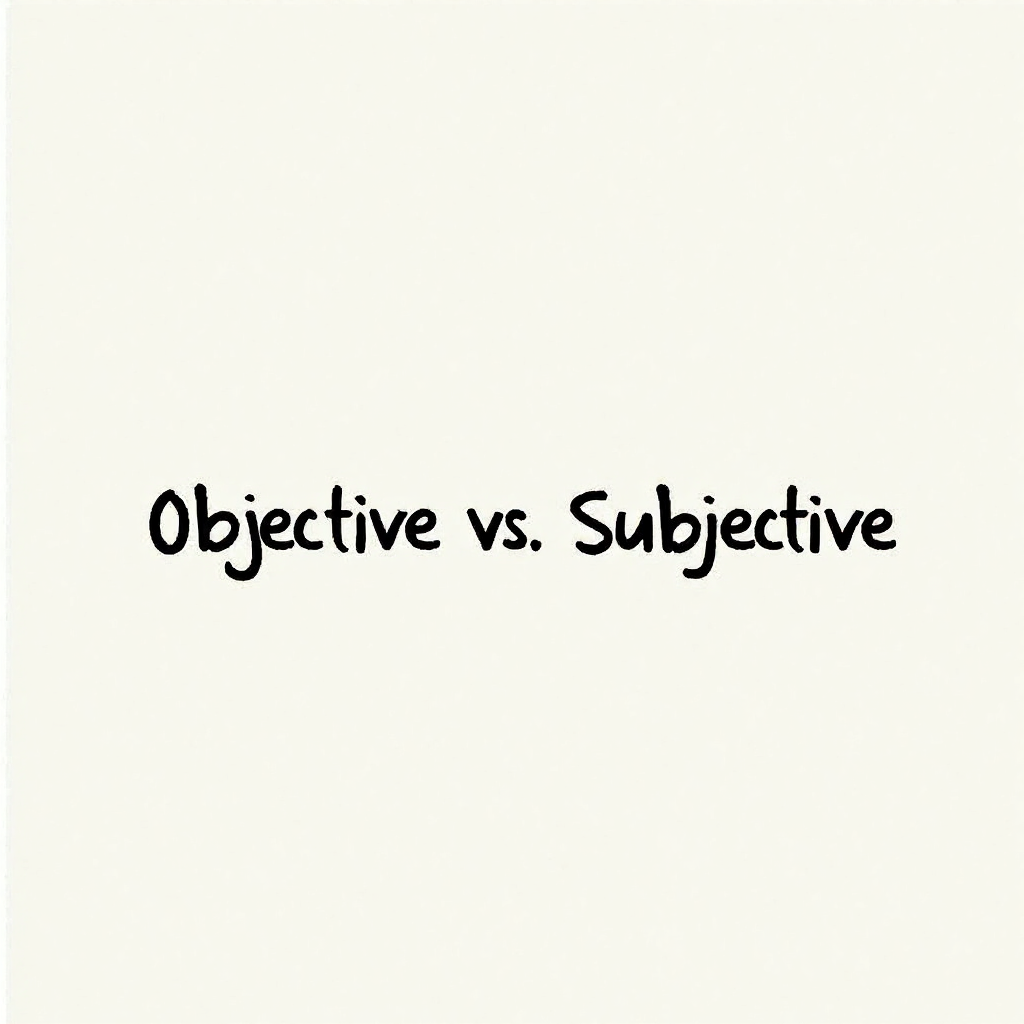“Objective” vs. “Subjective” - What’s the Difference?

Some words in English sound similar but carry very different meanings. Objective and subjective are two such words, and they often confuse learners.
Midoo AI is here to help! Today, we’ll explore the difference between these two words, how to use them correctly, and give plenty of examples so you can master them with ease.
Objective – Factual and Unbiased
Objective refers to something based on facts, evidence, or reality, without influence from personal feelings, opinions, or beliefs. When you are objective, you focus on what is true and verifiable.
Examples:
- teacher gave an objective assessment of the students’ performance.
- Scientists try to remain objective in their research.
- The report provides an objective analysis of the market trends.
- We need objective evidence before making a decision.
- His review of the movie was objective and based on facts.
Tip: If you can prove it with facts or data, it’s probably objective.
Subjective – Based on Personal Opinion
Subjective is the opposite of objective. It refers to personal opinions, feelings, or beliefs rather than facts. When something is subjective, it can vary from person to person.
Examples:
- Her opinion about the painting was completely subjective.
- Choosing your favorite food is a subjective decision.
- The article was interesting but highly subjective.
- People’s reactions to music are often subjective.
- He gave a subjective review of the book based on his taste.
Tip: If it depends on how someone feels or thinks, it’s subjective.
Key Differences
| Feature | Objective | Subjective |
|---|---|---|
| Based on | Facts, evidence, reality | Personal opinion, feelings |
| Influence | Unbiased, neutral | Biased, personal perspective |
| Example | “The table is 2 meters long.” | “The table looks beautiful.” |
| Use in writing | Reports, research, news | Reviews, personal essays |
Midoo AI suggests remembering the difference by thinking: objective = fact, subjective = opinion.
Tips for Using Objective vs. Subjective
- Check for evidence: If there’s proof, it’s likely objective.
- Watch for feelings: Words like “I think” or “I feel” often signal subjectivity.
- Know your audience: Academic and professional writing usually prefers objective language. Personal blogs or reviews are often subjective.
- Balance is important: Even in subjective writing, it helps to support opinions with some facts.
FAQs
Can something be both objective and subjective?
Yes, sometimes facts are presented with personal interpretation. For example, “The movie won three awards, but I think it was overrated.”
Is objective always better than subjective?
Not always. Objective writing is needed for facts and reports, while subjective writing is important for opinions, creativity, and personal expression.
How do I spot subjective language?
Look for phrases like “I feel,” “I think,” or descriptive opinions without proof.
Can subjective opinions be respected in professional writing?
Yes, but they should be clearly marked as opinions and, ideally, supported by reasoning or examples.
Why do people confuse objective and subjective?
Because both words are used in everyday conversation and writing, but they represent opposite approaches—one fact-based, the other opinion-based. Understanding the difference requires attention to context.
Conclusion
By practicing examples and paying attention to whether a statement is fact or opinion, you can master the difference between objective and subjective.
Midoo AI recommends writing a few sentences each day and labeling them as objective or subjective—it’s a simple exercise that works wonders!